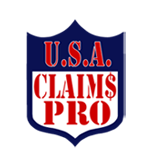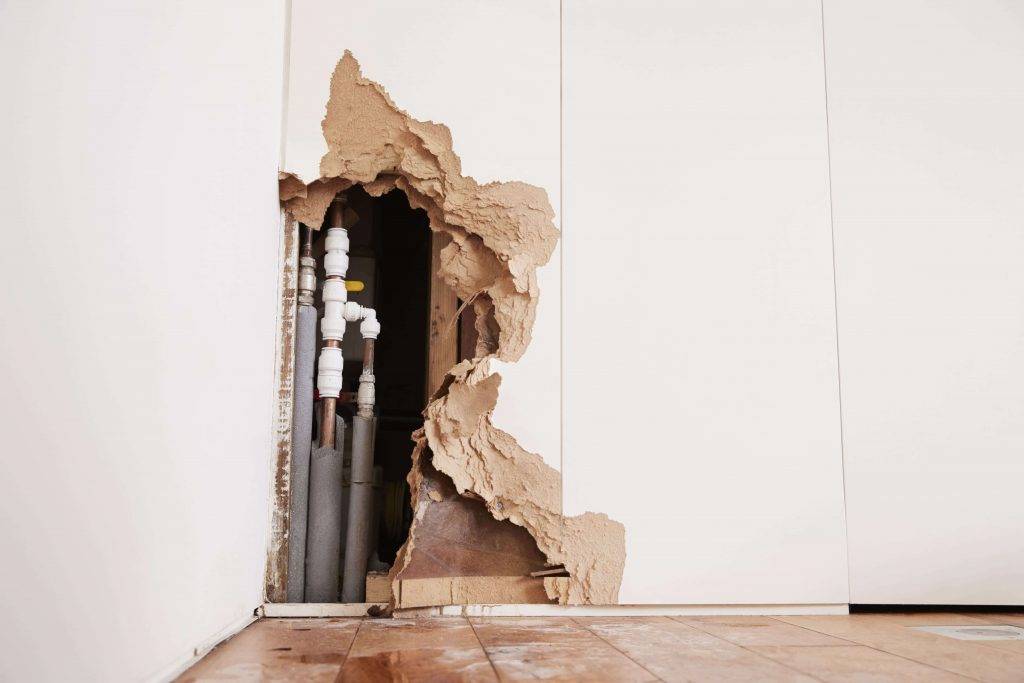Repairing water damage can be expensive. Though small quantities may appear harmless at first, once it seeps into your carpets, walls, and basement, it could cost a considerable amount to restore them. As such, homeowners insurance policies must cover water damage claims.
According to the Insurance Information Institute, between 2016-2022, the average water damage claim per home averaged $11,650. Standard homeowners insurance policy may cover some costs associated with water damage in your home. In this article, we address the kinds of water damage covered and how to prevent further ones.
What Is Water Damage Insurance?
Water damage insurance protects from sudden and accidental water damage to homes. Unfortunately, it doesn’t cover damage caused by negligence on the homeowner’s part or by failing to maintain their home in good condition. Flooding usually falls under its flood insurance policy (if one exists).
Depending upon the extent of damage, homeowners’ insurance policies offer two forms of coverage.
Coverage for Dwellings
Dwelling Coverage covers structural damage caused by insured perils such as burst pipes. In such an instance, dwelling coverage would help cover the cost of repairs required in case the wall is compromised as a result.
Personal Property Coverage
Personal Property Coverage can help pay for damages to your belongings caused by covered risks. For instance, if a burst water pipe soaks your computer or bookcase, causing it to be water-damaged, personal property coverage could cover the repair or replacement costs for such damaged items.
When does insurance cover water damage?
Home insurance typically covers any damage resulting from perils, such as windstorms that result in water damage. Here are a few examples of how coverage for storm damage can help recover losses caused by flooding:
Wind-Driven Rain
Your homeowners’ insurance may cover water damage caused by wind and rainstorms if a storm system strikes and damages your roof with wind and rain, including debris flying into windows that allow rain leakage into flooring beneath them and flooding floors below them. In such an instance, it would likely cover these damages.
Burst Pipes
In the event of a burst pipe or water pooling, your dwelling coverage will cover repairs to walls and floors, while personal property coverage provides wet furniture or decorations coverage. Older homes with outdated plumbing systems are more susceptible to leaks or broken pipes.
Mold Removal
Homeowners’ insurance may cover mold removal if water damage results in mold growth. Mold and mildew typically appear 24 to 48 hours post damage; your policy might provide coverage if a pipe bursts, leading to mold growth.
Want more information about our services? Get in touch with us!
Your policy does not cover mold removal if there are outstanding maintenance issues or a homeowner has neglected to address them. Your coverage also does not extend to repairs if your sprinkler system accidentally activates and causes water damage on your baseboards, leading to mold growth and repairs being necessary.
Appliance Malfunctions
Water damage can result from washing machine leaks and water heater hose leaks that cause wall leakage. Homeowners insurance should cover repairs to your home as well as replacing damaged items. However, your policy may not cover appliance repairs unless covered under warranty.
Ice Dams
Ice dams occur when ice forms a dam that prevents water from draining correctly, pooling on roofs, and damaging shingles while leading to leakage issues – these damages may be covered under your homeowners’ policy.
What happens if your insurance does not cover water damage?
Water damage incurred through exterior flooding is one of the primary exclusions to homeowner insurance policies, so here is some important information regarding events that do not fall within coverage.
Flood Damage Indoors
Within the insurance industry, flooding refers to any sudden rise in water levels from external sources. Unfortunately, flood coverage is not included with most standard homeowners policies; you must purchase a separate policy for flood insurance if you live in an at-risk area – either through the National Flood Insurance Program or private insurers.
Flood insurance can protect you even if you do not live in an area prone to flooding. According to FEMA, 40% of National Flood Insurance Program (NFIP) claims come from those outside high flood-risk zones; even an inch deep of floodwater can cause damages worth $25,000.
Water and Sewer Backups
Unfortunately, home insurance policies typically do not cover damage from sump pump failure or sewer backups; however, you can add an endorsement for water backup coverage, which will cover any related damage resulting from either event. Having such coverage provides ample protection in case something unexpected comes up!
Homeowner Negligence
If a homeowner neglects their property properly, insurance may not cover water damage caused by neglect or poor maintenance. Let’s say your roof requires a replacement; even though that might not fall under their coverage policy, your insurer might still provide claims for water damage from roof leaks, provided that there were other contributing factors like negligent maintenance. Due to poor maintenance, it may not fully cover all areas.
How to Claim Home Insurance Coverage for Water Damage?
As a homeowner, it is your responsibility to know the risks covered under your policy and how to file a claim if any damage or loss occurs. Water damage to property is common among apartment buildings with shared pipes; unfortunately, it’s often difficult for individuals to understand precisely which coverages exist within standard home policies when it comes to water damage insurance claims. Here is some additional information regarding water damage coverage and property damage claim procedures.
Want more information about our services? Get in touch with us!
How to File a Home Insurance Claim for Water Damage?
Below is the general process for filing an insurance claim related to water damage.
- In case of an accident, it’s always wise to prioritize personal safety first. In cases such as fires or pipe ruptures, immediately call emergency services before taking steps to limit further losses.
- When seeking repairs for damages caused by water, always keep all receipts.
- Contact your insurer via mobile phone or the internet and file a claim for damage immediately after being affected by water.
- In your claim, you should state what kind of loss it was, such as fire/water damage, and describe any losses or damage sustained to both personal property and your home.
- Your insurer will inform you of which documents are necessary. At a minimum, have your policy number, name, and address information ready, as well as valid identification.
- Depending on the nature and extent of damage sustained during an incident, a company adjuster may also be assigned to inspect damage at its source.
- Once your claim has been processed and approved, reimbursement will be distributed accordingly.
- As an insured, it is your responsibility to understand what’s included and excluded in your policy, the claim process, and the coverage provided by your insurer, mainly since water damage can be very costly.
- If you feel unsatisfied with your claim settlement figure, you can hire a public adjuster for a second piece of advice. Public adjusters are insurance professionals who can assist you in your water damage claim process and negotiate for a favorable settlement on your behalf.
Consult ClaimsPro USA for your water damage claims:
ClaimsPro USA is Florida’s trusted insurance claim adjusting firm, having a team of professional public adjusters licensed by the State of Florida to provide insurance claim expertise and level the playing field between you and your insurance carrier. Our water damage public adjuster will work on your behalf and help you get the maximum settlement you deserve.

